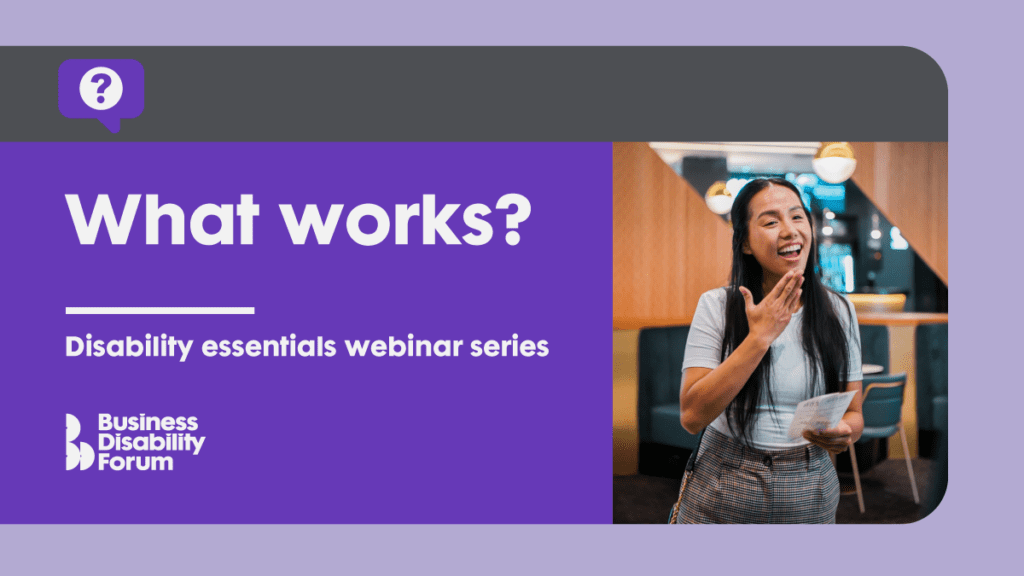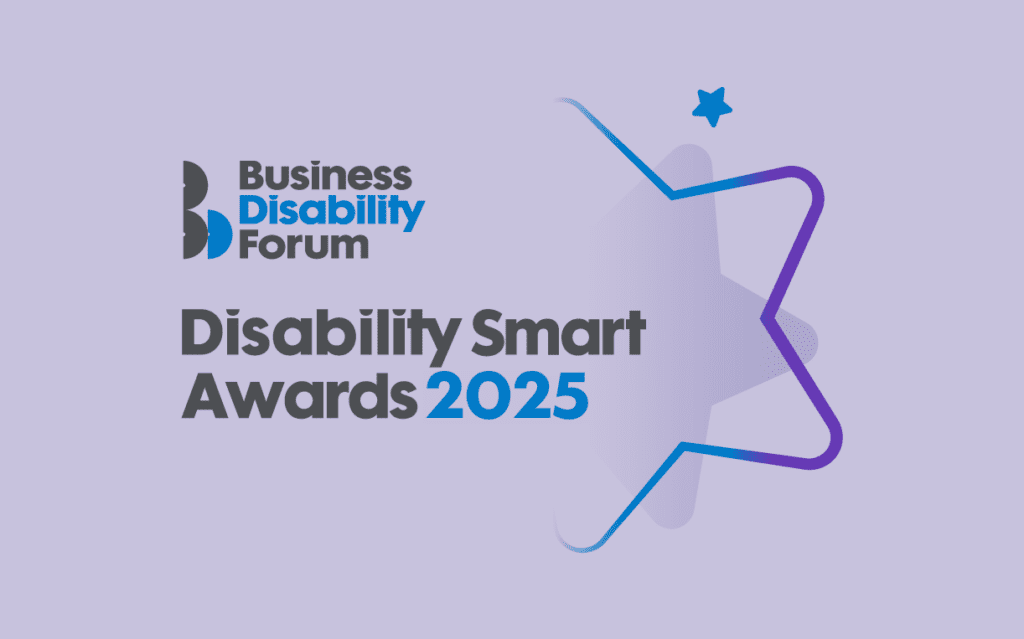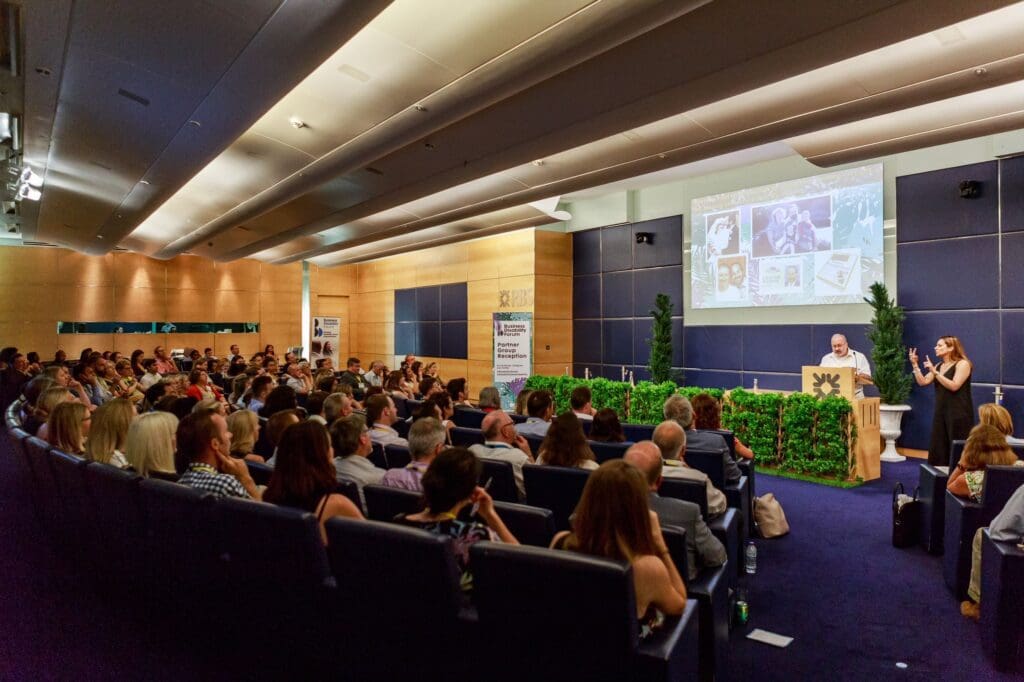Southeastern
Southeastern has done a huge amount of work to highlight the role of the rail industry to help people with disabilities.

This year, we asked you to share your stories of how disabled people have been involved, included and helped create a kinder world in 2020.
Southeastern Disability Support
Southeastern has done a huge amount of work to highlight the role of the rail industry to help people with disabilities.
As part of the company’s wider diversity and inclusion objectives, Southeastern makes sure all trains are accessible for everyone from all walks of life including those living with disabilities, both invisible and visible.
On Southeastern trains, those with a disability can book passenger assistance and board accessible trains. Discounts are also available for disabled and visually impaired passengers.
Triple Paralympian Andy Barrow is a regular passenger on Southeastern trains and one of our accessibility consultants. His advice to other passengers is that safe and accessible travel by train is always possible, and people should not be afraid to ask for the assistance they need from station staff. Southeastern team members are trained to support and always ready to help.
Whilst Southeastern has taken extra measures to keep passengers and staff safe during coronavirus, we have made sure we can continue to assist any disabled passengers whilst accounting for extra risks.
Speaking about the measures taken on the train network to help combat coronavirus, Andy said “Despite being quieter, the safety measures such as hand sanitising stations and one-way systems were excellent.”
Disability Access
The Southeastern rail network is a vital transport lifeblood for the entire Kent and South East England community. In order for disabled people to live as independently as possible and move around the region for work and leisure travel, it is important stations are accessible for them.
To work towards this goal, Southeastern has implemented step-free access in 20 of the regions busiest stations since 2006, reducing the barriers disabled people face to travel.
In addition to this, Southeastern invests over £300,000 through the Minor Works Fund each year into improving stations, and improving accessibility remains core to the decisions of where to make these improvements.
Handrails, tactile paving and highlighted stair nosings are being installed in stations, and mobility scooter boxes have also now been trialled. Southeastern continues to work closely with Department for Transport and Network Rail to keep taking down these barriers through the Access for All programmes.
Priority Seat Card and Badge
Southeastern trains have priority seats, marked with a ‘P’ and inside a blue triangle. These are designed for passengers who are elderly, pregnant, disabled or looking after young children.
However, these seats can often be taken on a busy train and we understand it can be difficult or uncomfortable asking someone to give up their seat for you. Priority seating badges and cards allow those who need a seat to discreetly request other passengers to give up their seat for others. These can also be shown to members of staff, who will do everything they can to assist those who need seating.
Passengers can apply for these cards on the Southeastern website. ‘Baby on board’ badges are also available.
Southeastern Hidden Disability Support Programmes – JAM Card and Sunflower Lanyard
In order highlight hidden disability awareness, last year Southeastern rolled out a dual trial of JAM Cards and Sunflower Lanyards in a joint approach.
The ‘Just A Minute’ or JAM Card can be used who find it difficult to communicate due to learning difficulties or other issues. By showing it to a member of Southeastern staff, who are trained to support, they can discretely signal that they may need some extra time or support using our train networks.
The Sunflower Lanyard offers a similar route to those travelling with a wider range of hidden disabilities including dementia, anxiety, chronic fatigue, autism or others. It allows those wearing the discreet lanyard to signal to Southeastern staff that they may need additional help.
Natalie Leister
The JAM Card and Sunflower Lanyard initial trial was led by Southeastern Area Manager Natalie Leister. Natalie has a child with autism and thus first-hand experience of the challenges associated with having an invisible disability. As a result, she is passionate about raising awareness to help Southeastern employees and passengers who may also face these difficulties on the network.
“When it came to work, my son’s diagnosis made me question the way we look at things as employees at Southeastern” she said. “A schoolboy with autism could quite easily be misunderstood by staff who are unaware of certain behaviours. By providing staff with additional information, we can ensure they are knowledgeable and aware to hidden disabilities.”
Last October, Natalie authored an inspiring article for The Independent describing the challenges she has faced. In it, she describes the beneficial impact the JAM Card had for her and her son. “Now I feel better knowing that my child’s commute to and home from school is safeguarded even further. I know that someone is around who understands the need to take the extra minute in case Archie is having issues”.
Press play for audio
If you require this content in a different format, contact enquiries@businessdisabilityforum.org.uk.


